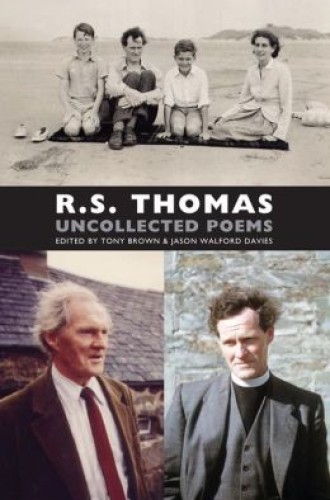Uncollected Poems, by R. S. Thomas; edited by Jason Walford Davies and Tony Brown
Ronald Stuart Thomas, poet and priest of the Church in Wales, died in 2000. With creative energy that spanned the second half of the 20th century, Thomas produced dozens of volumes of original work. The poems in the present volume, published now in the centenary of his birth, appeared in journals and newspapers throughout his long literary career.
Thomas served as a parish priest for 40 years. His poem “Vocation” is a reflection on parish ministry that lightly traces the sacramental offerings of the church from the point of view of a settled priest. Against long predictable absences and reappearances of the people, and against the challenges of changing times, the priest maintains a patient sacramental presence: “Against times / That infect I offer my / Priceless inoculation.”
In a 1990 interview Thomas said, “Who can be dogmatic about Christ? He was a poet and he drew his imagery largely from nature.” Thomas listened for Christ in voices from the sea and from the fields of Wales. He wrote in 1986 that he “moved in unimportant circles, avoiding or being excluded from the busier and more imposing walks of life” and that he was “rarely happy in numerous company and kept out of literary circles.” He described his poetic method as growing out of a “small talent for turning limited thoughts and experience and meditation on them into verse.”





